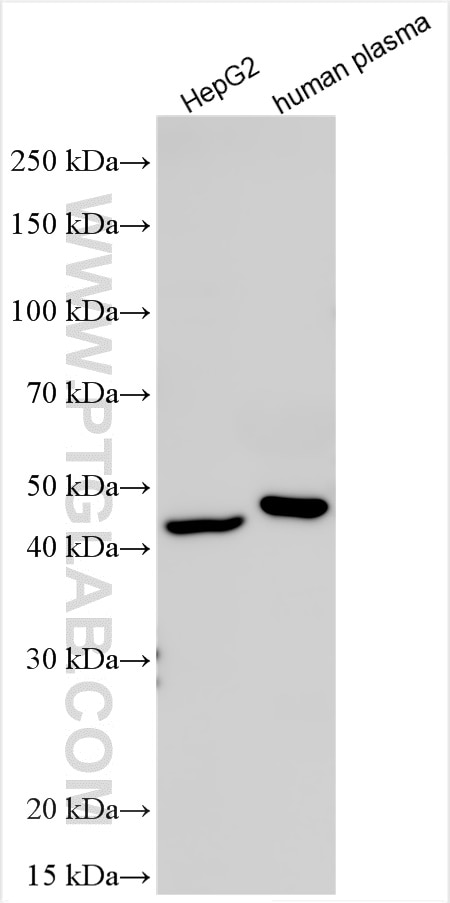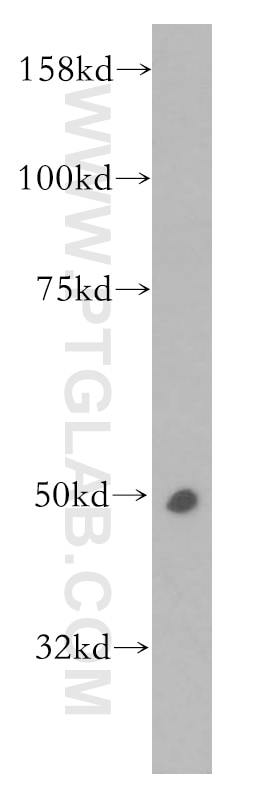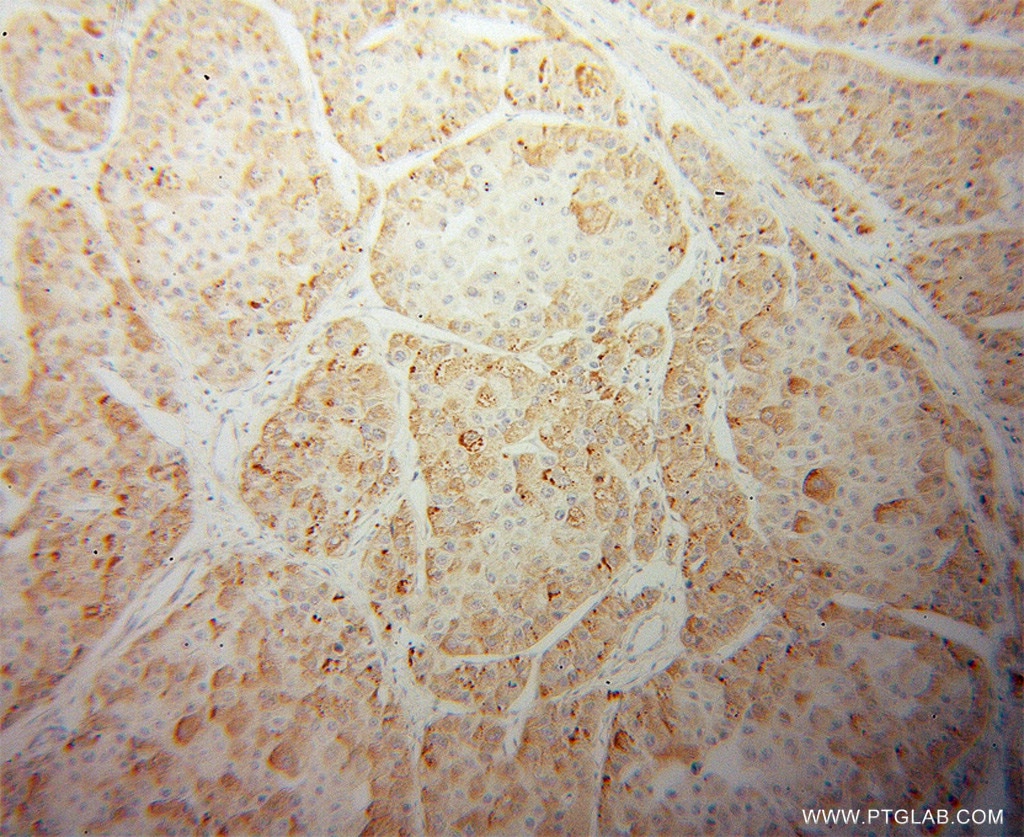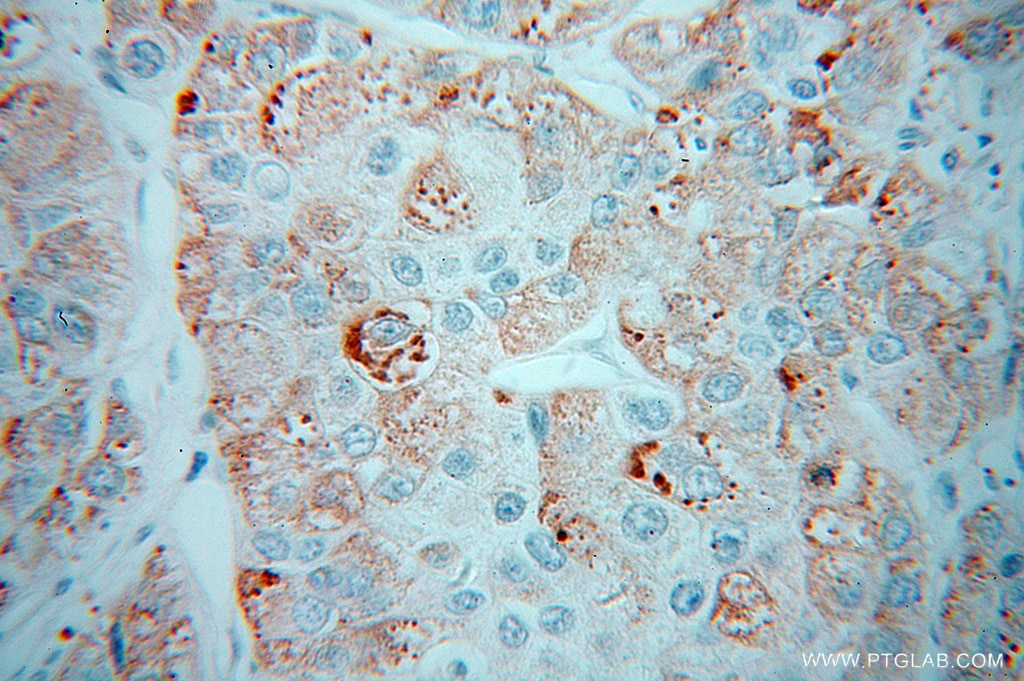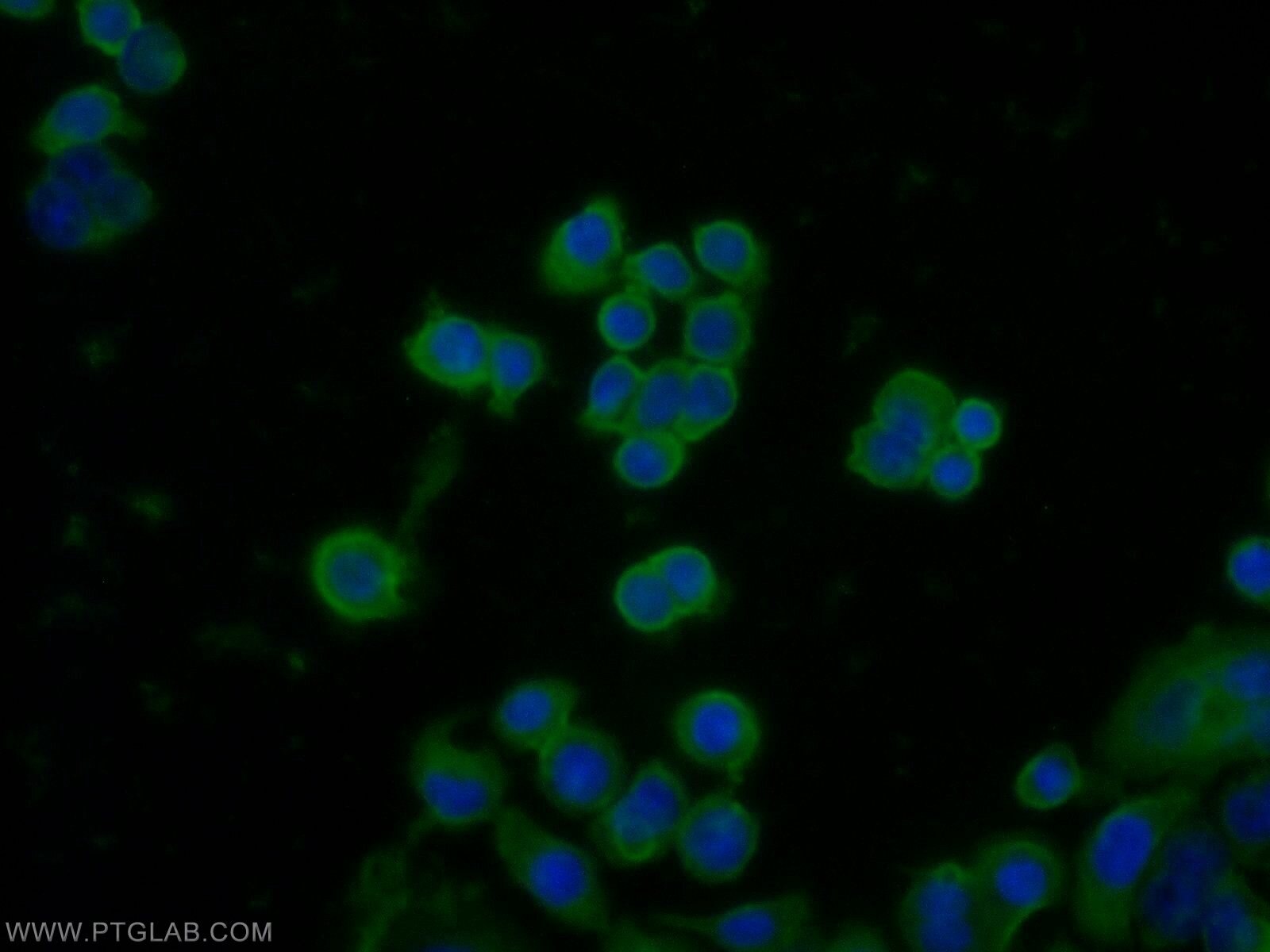Anticorps Polyclonal de lapin anti-CPN1
CPN1 Polyclonal Antibody for WB, IHC, IF/ICC, ELISA
Hôte / Isotype
Lapin / IgG
Réactivité testée
Humain
Applications
WB, IHC, IF/ICC, ELISA
Conjugaison
Non conjugué
N° de cat : 13385-1-AP
Synonymes
Galerie de données de validation
Applications testées
| Résultats positifs en WB | cellules HepG2, cellules Raji, tissu plasmatique humain |
| Résultats positifs en IHC | tissu de cancer du foie humain il est suggéré de démasquer l'antigène avec un tampon de TE buffer pH 9.0; (*) À défaut, 'le démasquage de l'antigène peut être 'effectué avec un tampon citrate pH 6,0. |
| Résultats positifs en IF/ICC | cellules COLO 320 |
Dilution recommandée
| Application | Dilution |
|---|---|
| Western Blot (WB) | WB : 1:1000-1:6000 |
| Immunohistochimie (IHC) | IHC : 1:20-1:200 |
| Immunofluorescence (IF)/ICC | IF/ICC : 1:10-1:100 |
| It is recommended that this reagent should be titrated in each testing system to obtain optimal results. | |
| Sample-dependent, check data in validation data gallery | |
Applications publiées
| IHC | See 2 publications below |
Informations sur le produit
13385-1-AP cible CPN1 dans les applications de WB, IHC, IF/ICC, ELISA et montre une réactivité avec des échantillons Humain
| Réactivité | Humain |
| Réactivité citée | Humain |
| Hôte / Isotype | Lapin / IgG |
| Clonalité | Polyclonal |
| Type | Anticorps |
| Immunogène | CPN1 Protéine recombinante Ag4035 |
| Nom complet | carboxypeptidase N, polypeptide 1 |
| Masse moléculaire calculée | 458 aa, 52 kDa |
| Poids moléculaire observé | 40~50 kDa |
| Numéro d’acquisition GenBank | BC027897 |
| Symbole du gène | CPN1 |
| Identification du gène (NCBI) | 1369 |
| Conjugaison | Non conjugué |
| Forme | Liquide |
| Méthode de purification | Purification par affinité contre l'antigène |
| Tampon de stockage | PBS avec azoture de sodium à 0,02 % et glycérol à 50 % pH 7,3 |
| Conditions de stockage | Stocker à -20°C. Stable pendant un an après l'expédition. L'aliquotage n'est pas nécessaire pour le stockage à -20oC Les 20ul contiennent 0,1% de BSA. |
Informations générales
Human carboxypeptidase N (CPN), a member of the CPN/E subfamily of "regulatory" metallo-carboxypeptidases, is an extracellular glycoprotein synthesized in the liver and secreted into the blood, where it controls the activity of vasoactive peptide hormones, growth factors and cytokines by specifically removing C-terminal basic residues. Normally, CPN circulates in blood plasma as a hetero-tetramer consisting of two 83 kDa (CPN2) domains each flanked by a 48 to 55 kDa catalytic (CPN1) domain. The C terminal region of the CPN1 subunit differs from all other family members in that it contains numerous basic residues. Proteolysis at these sites apparently happens either constitutively in the blood or during processing and secretion from the liver.
Protocole
| Product Specific Protocols | |
|---|---|
| WB protocol for CPN1 antibody 13385-1-AP | Download protocol |
| IHC protocol for CPN1 antibody 13385-1-AP | Download protocol |
| IF protocol for CPN1 antibody 13385-1-AP | Download protocol |
| Standard Protocols | |
|---|---|
| Click here to view our Standard Protocols |
Publications
| Species | Application | Title |
|---|---|---|
Front Pharmacol High Expression of RAI14 in Triple-Negative Breast Cancer Participates in Immune Recruitment and Implies Poor Prognosis Through Bioinformatics Analyses. | ||
Cancer Cell Int Carboxypeptidase N1 is anticipated to be a synergy metrics for chemotherapy effectiveness and prognostic significance in invasive breast cancer |
